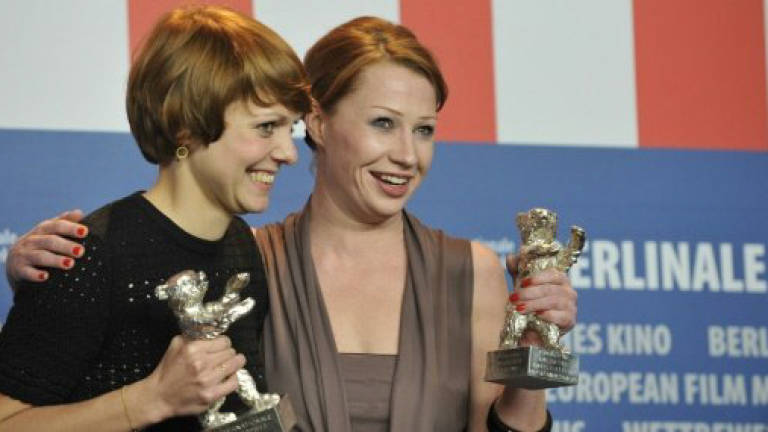Upstart director Maren Ade takes Berlin cool to Cannes

MAREN Ade, the woman who single-handedly banished a German dry spell at Cannes by landing a coveted slot in this year's competition, is a standout member of the so-called Berlin School of filmmaking.
Ade's third feature Toni Erdmann will be the first contender by a German director at the world's premier film festival since Wim Wenders showed little-loved The Palermo Shooting in 2008.
Not even 40, Ade is vying with veterans including Pedro Almodovar, Jim Jarmusch and Ken Loach for Cannes' Palme d'Or top prize, in a field that includes just three women.
Her new picture is billed as the portrait of a father trying to reconnect with his estranged adult daughter who is living in Bucharest. Reports said Ade was racing to finish the edit before her red-carpet premiere on Saturday.
Character-driven, hyper-realist and as downmarket cool as the city itself, the Berlin School has taken up the mantle from illustrious German directors including Wenders, Werner Herzog and Rainer Werner Fassbinder.
Sometimes billed as the "Nouvelle Vague Allemande", the Berlin School has risen to such prominence in global arthouse cinema that New York's Museum of Modern Art ran a retrospective in 2013 including Ade's Everyone Else and Christian Petzold's Barbara.
"After German reunification there was still a lot of no-man's-land, on the streets and in the people's heads," co-curator Rajendra Roy said at the time.
"It was a time of insecurity after the Berlin Wall fell, of transitional space and fragile identities."
One of its most distinctive features is drawing directors from Germany's former west to tell stories in the east, compounding the fish-out-of-water quality of the films.
The Romanian setting of Toni Erdmann maintains that border-crossing focus and is expected to echo the bittersweet tone of her previous films, in which the tragic and the comic are intimate bedfellows.
'Breathtakingly close... to perfect'
Ade made her name with 2009's Everyone Else, a finely wrought love story with two top theatre stars, Birgit Minichmayr and Lars Eidinger, playing a couple who reach a crossroads while on holiday in sun-drenched Sardinia.
In a rave review, Manohla Dargis of the New York Times said the movie "might not be perfect, but so much is right and true in this lovely, delicate work that it comes breathtakingly close".
It captured the Silver Bear for best actress for Minichmayr at the Berlin film festival and the grand prize from a jury led by Tilda Swinton, while her feature debut, The Forest For the Trees, clinched the special jury award at the 2005 Sundance film festival.
Ade has since turned her focus to producing films, including her partner Ulrich Koehler's 2011 award-winning Sleeping Sickness, and the rapturously received Portuguese feature Tabu by Miguel Gomes in 2012.
Born in the southwestern city of Karlsruhe, Ade discovered cameras as a teenager. She went on to attend the Munich Film School and The Forest For the Trees was her graduation project.
"My career has stayed on a single path, which I sometimes regret a little," she admitted in an interview with Berlin's daily Tageszeitung when Everyone Else was released.
She said she was most interested in capturing the unspoken and barely seen with her lens.
"I am always drawn to characters – that's what occupies me most. It's also a psychological focus – I'm very interested in subtexts when I write a scene, with desire, wishes and longing," she said. — AFP